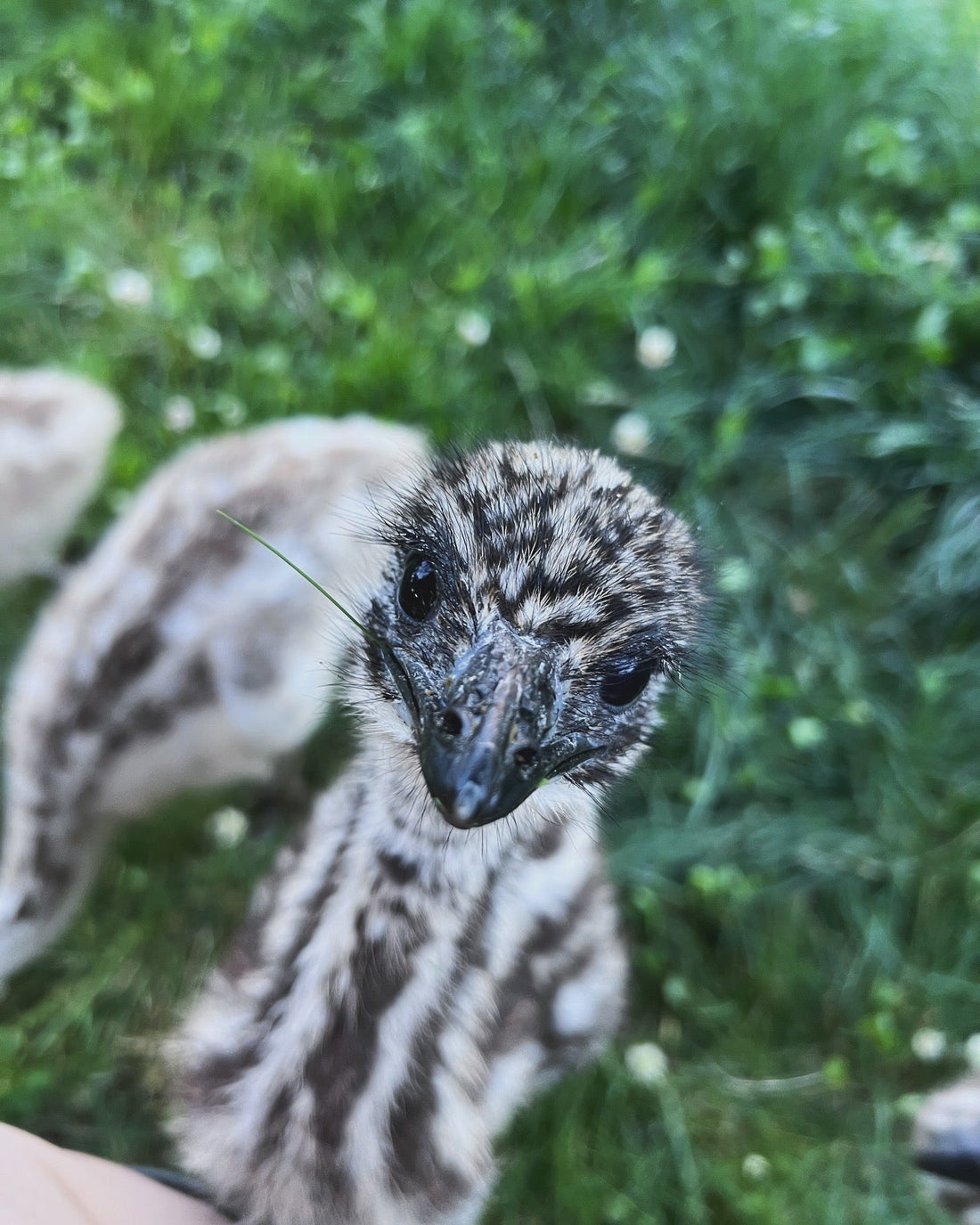
Emu Care Guide: Tips for Raising Happy, Healthy Emus
Emus are fascinating, large flightless birds that require specific care and commitment. Whether you're raising them as pets, for farming, or for conservation, proper husbandry is crucial. Below is a guide covering essential aspects of emu care, including space requirements, diet, social needs, and overall well-being.
1. Space Requirements
Emus are active birds that need plenty of space to roam and exercise.
- Minimum Space per Emu: At least 1000 sqft per couple of emus is recommended.
- Fencing: Sturdy 6-foot-high fencing is essential to prevent escapes and keep predators out.
- Shelter: While emus are hardy, they need a windbreak or covered shelter for protection against extreme weather conditions.
2. Diet & Nutrition
A balanced diet ensures proper growth and health.
- Starter + Grower Feed (0-14 months): High-protein (20%) ratite starter feed.
-
Adult Maintenance Diet (14+ months): 16-20% protein maintenance feed, depending on the specific feed formulation.
- Some maintenance feeds contain up to 20% protein, particularly if formulated for breeding or higher activity levels.
- Additional Feed: I add extruded rabbits pellets for both adults and chicks for extra fiber. Very important that the pellets are extruded. For chicks I recommend mixing 50/50 ratite feed with extruded rabbit feed. For adults we recommend mixing 75% ratite feed with 25% extruded rabbit feed.
- Supplements: Grit, calcium, and occasional treats (like mealworms or small amounts of fruit or berries) for enrichment. I also add a scoop of Rooster Booster pellets to both chicks (everyday till 14 months old), and twice a week for adults.
- Water: Always provide fresh, clean water in large, shallow containers to prevent drowning of chicks.
3. Social & Behavioral Needs
- Emus are social birds and thrive best when kept in pairs or small groups.
- Avoid isolation—a single emu can become stressed and develop behavioral issues.
- Handling & Bonding: While they can be friendly, early socialization helps them become comfortable around humans.
- Enrichment: Providing safe objects to peck at, areas to explore, and occasional supervised free-roaming can keep them engaged.
4. Health & Veterinary Care
- Deworming & Parasite Control: Routine checks and treatment as needed.
- Signs of Illness: Watch for lethargy, loss of appetite, limping, or abnormal droppings.
- Vet Access: Not all veterinarians are experienced with emus—having a specialized exotic or avian vet on call is recommended.
5. Housing & Climate Considerations
- Emus adapt well to various climates, but extreme cold or heat requires adjustments.
- Provide shaded areas and water for cooling in hot weather.
- During winter, ensure dry bedding and windbreaks to protect them from frostbite or excessive chill.
6. Breeding & Chick Care
- Breeding season typically occurs in the cooler months.
- Male emus incubate the eggs, sitting on them for 8 weeks without eating much.
- Newly hatched chicks need warm, dry enclosures and must be closely monitored.
- Chick socialization is key to reducing stress and promoting healthy growth.
